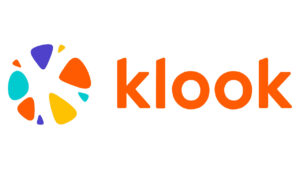PHL tourism businesses lagging in race to digitalize, Klook says
BUSINESSES catering to tourists in the Philippines have not yet sufficiently embraced digitalization, according to the co-founder of travel platform Klook.

By Chloe Mari A. Hufana, Reporter
BUSINESSES catering to tourists in the Philippines have not yet sufficiently embraced digitalization, according to the co-founder of travel platform Klook.
“The merchants (in the Philippines) are very offline, not digital, but the advantage is that the tourism offices are receptive,” Klook President and Co-Founder Eric Gnock Fah told reporters in Singapore.
He said Klook is working with Philippine tourism authorities to promote more digitalization that will allow them reach out to a “new set of consumers who are willing to spend,” particularly the younger demographic.
He said Klook is an option to go digital as an alternative to a business building its own system.
“It’s the ability to make bookings easily and to be able to promote these services online easily,” he said, citing the booking service in China known as Red.
“Most Chinese consumers will be looking at Red when they think about travel, overseas particularly, but to create content there and to enable booking there is not an overnight thing,” he said.
“That’s where Klook came in as an intermediary. Merchants need to know that there’s this type of channel or this type of app that they need to be present in, otherwise the Chinese market, for example, will not know that their service exists in Boracay or El Nido,” according to Mr. Fah.
According to Klook’s website, the company completed a $210 million funding round in December.
Mr. Fah said the money will go towards the improving the use of generative artificial intelligence (Gen AI) on the platform.
“It’s an expensive industry, but we also believe that it’s the future,” he said.
He added that Klook currently uses Gen AI to maintain quality across all merchants globally, specifically in streamlining customer reviews.
“Once these reviews come in, we actively review ourselves using generative AI. It is now much faster, much more efficient, and we will then summarize and again communicate back with the merchants and give them that feedback from consumers and provide them with what we call solutions or suggestions,” he said.
As Klook celebrates its 10th anniversary, he said putting technology at the heart of the operation has made the company the leading travel platform in the Asia-Pacific.
“We saw it more as a technology platform and it happens that my passion is travel so let me bring travel into this platform and marry it with technology,” he added.
Mr. Fah, who formerly worked in finance, said he did not have the baggage of being a travel agent from day one, allowing him to rethink what travel could be.
“Marrying technology, which has no borders, can scale very fast; it brought us to where we are today, but which is still really just the beginning,” he added.
“I always say the next five years will still be a survival game because, in the last 10 years, the internet and mobile might have disrupted the traditional travel agencies,” he said.
“It’s very relevant how will AI change the world and in five years’ time AI might be in a completely different form and maybe a lot more integrated into our lives that will change how we plan, and book itineraries and we may or may not be relevant.”
The Hong Kong-based platform was launched in 2014, and positions itself as a one-stop shop for experiences and travel services, ranging from attractions and tours to local transport and experiential stays in over 2,700 destinations.












